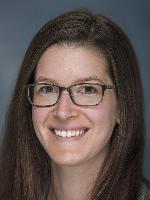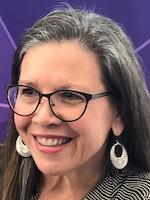

Digital Problem-Solving: Integrating Computational Thinking Across the Curriculum |
Listen and learn : Panel
Bryan Cox Dr. Lauren Margulieux Nick Pinder Carolyn Sykora
Emerging as a new literacy, computational thinking (CT) is also being recognized as a powerful way to build problem solving skills in students when integrated into the curriculum. Join the panel for how leaders in Georgia and elsewhere are building the capacity for CT integration in the classroom to build more experiential learning in content areas.
| Audience: | Teachers, Curriculum/district specialists, Teacher education/higher ed faculty |
| Skill level: | Beginner |
| Attendee devices: | Devices not needed |
| Topic: | Teacher education |
| Subject area: | STEM/STEAM |
| ISTE Standards: | For Educators: Facilitator
|
The purpose of this session is to share the beginnings and learnings from pilot projects to infuse computational thinking into accessible professional development. Panelists will address infrastructural and logistical challenges they overcame to develop a scalable model, as well as micro-credentials for individuals to apply computational thinking.
The session will primarily be a panel discussion and Q&A.
"Computational Thinking: Extend problem-solving beyond computer science"
iste.org/explore/computational-thinking/computational-thinking-extend-problem-solving-beyond-computer

Bryan Cox is the Lead Computer Science Program Specialist at the Georgia DOE, where he is responsible for broadening participation in K-12 Computer Science educational experiences. He develops and offers training opportunities and other supports for CS teachers and organizes the state’s Computer Science Advisory Council. He is a member of the CS4GA collective and serves on several advisory committees for CS initiatives. Bryan is a former High School STEM teacher, teaching math, computer science, and engineering. He is currently pursuing a Ph.D. in Instructional Technology from Georgia State University with a research focus in online learning and computational thinking.

Lauren Margulieux is an Assistant Professor of Learning Sciences at Georgia State University. She received her Ph.D. from Georgia Tech in Engineering Psychology, the study of how humans interact with technology. Her research interests are in educational technology and online learning, particularly for computing education. She also coordinates an initiative in Georgia State’s teacher preparation programs to integrate computing into pre-service teacher training in all disciplines and directs a computer science endorsement to certify in-service teachers to offer computing courses.

Project Manager at ISTE responsible for HIED Certification Programs, Computational Thinking, and NASA STEM projects.

Carolyn Sykora, senior director of ISTE Standards programs, has more than 20 years of experience in education leadership and program management for nonprofits. She promotes the implementation of the ISTE Standards in K-12 and in teacher preparation programs. including through the development of the ISTE Certification for Educators. Carolyn specializes in project and program leadership for resources, products and services that serve school and district leaders, technology coaches, classroom teachers and higher education faculty.
CANCELLED: Your Inclusive Classroom: Secrets to Using Google Tools to Promote UDL
PBL, SEL and the ISTE Standards: Say WHAT?
Support equity and accessibility with Microsoft Teams and Office 365 tools